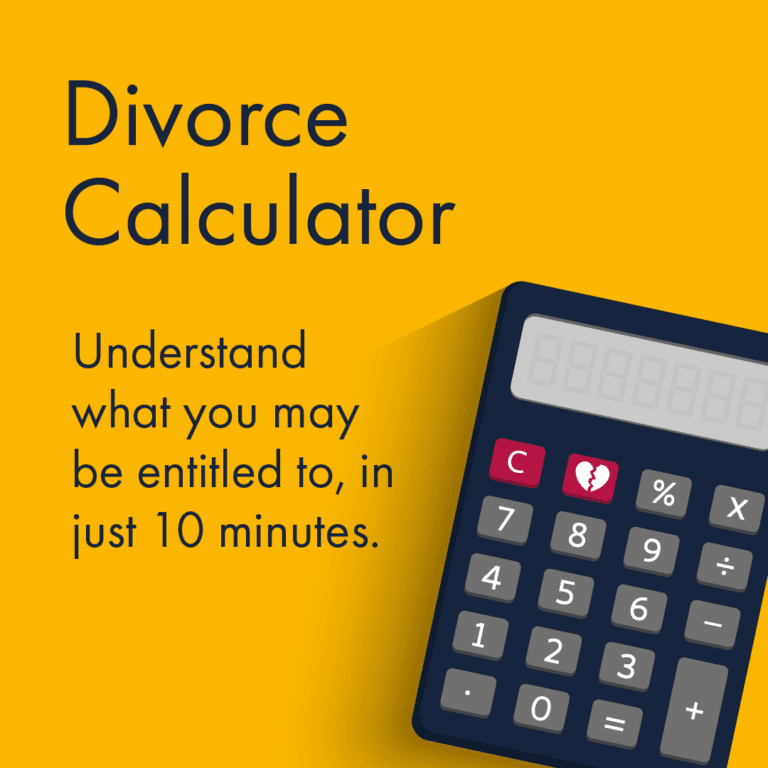What is a freezing order (freezing injunction)?
Freezing orders, also called freezing injunctions, are court orders granted under Section 37 of the Matrimonial Causes Act 1973 (S37). This section of the Act gives courts the power to prevent a party from disposing of assets until the conclusion of the case is reached. The court has the authority under S37 to prevent a spouse from disposing of (i.e. moving, changing or getting rid of) an asset they are imminently about to dispose of, or bring back an asset that has already been disposed of by setting aside a disposition.
read moreThey are complicated orders, but essentially mean your ex spouse cannot sell off, change, or hide individual or shared assets during divorce proceedings. They can be used to limit assets in the UK or in another country.
They are used in financial disputes for couples going through divorce or dissolution to ensure individuals are not cheated out of assets over which they have a matrimonial claim.
You may sometimes hear freezing orders called S37 applications, or ‘Mareva injunctions’. The latter term is based on a 1980 High Court case. The injunction was granted in this case to prevent a foreign defendant from moving his assets out of the English jurisdiction.
Key divorce finances information
|
What is a prenuptial agreement? |
Also known as ‘prenups’, prenuptial agreements are written contracts that couples can enter before marriage or civil union. The prenup outlines ownership of money, assets, or property and what will happen to them in the case of divorce or dissolution. |
|
How does spousal maintenance work? |
Different to child maintenance, spousal maintenance is a payment from one former spouse to another after divorce. The amount can change at any time and should be decided based on financial needs and income. A divorce lawyer can help you come to an agreement on how much spousal maintenance should be paid out of court. |
|
What is a freezing order? |
Commonly used in divorce or dissolution cases, freezing orders prevent one spouse from disposing of assets until a case is resolved. This protects the other part from missing out on assets they may have matrimonial claim over. |
Our other financial family law services
 Use the calculator
Use the calculator
Which assets can be frozen under a freezing order?
A freezing order provides protection over money, property, investments, land, vehicles, shares and bonds and even assets that don’t yet exist, such as an award of damages for personal injury.
How can we help you get a freezing order?
Under Section 37 of the Matrimonial Causes Act, in order to obtain a freezing order/injunction, you must prove to the court that the assets are at risk. This needs to be done quickly.
read moreTo obtain a freezing injunction, you must prove to the court that the assets are at risk – and quickly. Our expert solicitors are highly skilled in collating the evidence needed and presenting your case to the court within the short timeframes required.
The freezing order can be made for assets in England and Wales, and globally (although the practicalities will vary from country to country). Our specialist freezing order lawyers can help you navigate these complicated areas of law and protect assets that may be at risk.
Meet our freezing order solicitors
We offer an award winning service
 Download the guide
Download the guide
When will a court grant a freezing order?
The court has a wide discretion to grant a freezing injunction. However, it will do so only when it considers that such action is just and convenient with the following factors in place:
read more- The English court must have jurisdiction
- The applicant must have a ‘cause of action’ such as deceit or a breach of trust (a counterclaim will also be sufficient) by the other party
- There is a good, arguable case – however, they do not need to show that the case will succeed, the court will give due consideration to the strength of any defence
- There must be sufficient assets in existence to meet the amount of the claim
- There must be a real risk that the person in charge of those assets will dispose of or use them up
The applicant must provide an undertaking to the court to pay any damages to the other party if it is later shown that the injunction should not have been granted
Why choose Stowe Family Law?
As the only national law firm fully dedicated to family matters, our expert team offers professional advice so you can make a fully informed decision about your divorce.
We are proud to be rated ‘Excellent’ on Trustpilot. Check out our reviews to see what our previous clients have said about our service.
We feature in The Legal 500 rankings and are fully authorised and regulated by the Solicitors Regulation Authority (SRA).
We keep you informed. Take a look at our support section, which features a range of helpful guides, focusing on important topics including finances and mediation.
Let's ask Ms G
Joanna Newton is tough, knowledgeable and dependable, she listened to me and discussed my options with me. She advised me where I stood and what my rights and my ex-husband's rights were. She gave me trusted advice about my home and financial security. I would recommend Joanna without any reservations.Let's ask Mrs H
I approached Louise to help me with my, divorce, finances and safeguarding issues around my children . Louise was extremely professional, friendly and knowledgeable. She offered me so much support and guidance and was with me every step of the way. It never felt like anything was too much trouble and I always felt reassured. I would highly recomme… Read morend Louise at Stowe family law, if you are looking for a highly professional and superb service then I suggest you instruct Stowe family law to act on your behalf as I am so grateful that I did.Let's ask Legal 500
Claire Cleary provides specialist advice in complex and high net worth cases. Calm, focused and unflappable.Let's ask Mrs F
When experiencing maintenance issues after my divorce Shanika Varga helped me in resolving these issues. She provided a very clear explanation of how to go forward and was very efficient in the whole process of dealing with the situation which brought me to an agreeable result. Shanika was very approachable, kind and caring and I would recommend he… Read morer to others.Let's ask Legal 500
Approachable and professional practice that has the client's interest at heart. Stowe Family Law are forward thinking and are not short of new, exciting ideas of how family law should be in the ever evolving market. The family team are thoroughly prepared and deal with complex financial remedy issues.Let's ask Legal 500
Having trained as a barrister, Sebastian Burrows is able to conduct his own advocacy and does so very successfully and persuasively. Seb has built up a strong reputation in matrimonial finance matters, particularly when it comes to dividing pensions, litigating city bonuses and achieving top-class results in dividing property portfolios. His case a… Read morenalysis is clear and his instructions succinct and to the point. His natural affable charm is the icing on the cake of his considerable legal and practical knowledge. He is very able – a gifted litigator and strategist.Let's ask Legal 500
Joanna Newton is always extremely well prepared and aware of the issues which are likely to impact on her client’s goals. Joanna cares a great deal about achieving the right outcome for her clients.Common questions on freezing orders and injunctions
Common questions on freezing orders and injunctions
-
Are freezing orders necessary?
Although freezing injunctions can be a useful thing to implement, they are often enacted unnecessarily.
In many cases, the threat of disposing of assets from the other party won’t carry any weight. Some cases use a letter and an undertaking by the spouse in the instance of a divorce. This is used as a legal promise to either act or not act on something.
If formal proceedings are required, specialist family lawyers can help you by asking the family court to preserve certain family assets. This way, you could save money because applications like these don’t need the same level of safeguarding as freezing orders.
People may be more inclined to implement a freezing order where large quantities of money are involved or where the relationship between the two parties has completely broken down with little trust.
-
Why can the courts action freezing orders?
The courts’ power to grant a freezing order comes from section 37 of the Senior Courts Act 1981. However, the legal principles that drive them revolve around whether it is ‘just and convenient’ to do so. This means the decision lies with the judge and whether they deem a potential freezing order to be fair.
It is important to take specialist independent legal advice from a freezing order solicitor with experience in this area of family law. They will be able to explain the intricacies to you in as much detail as you need.
-
How long does a freezing order last?
This decision ultimately lies with the courts. The initial period of 7-14 days can be extended or discharged depending on the outcome of the proceedings. In short, a freezing injunction can last as long as the court deems necessary.
-
What if the other party wants to move assets abroad?
The prospect of an ex-partner moving assets abroad can understandably cause panic, which is why some people turn to a freezing order.
It’s worth noting, however, that some clients’ assets could already be placed under another jurisdiction outside of England and Wales, in which case further movements of these assets could be almost untraceable.
Under these circumstances, a worldwide freezing injunction may be appropriate.
-
What happens if someone disobeys a freezing injunction?
If this happens, the offending party can be held in contempt of court. The consequences include being fined, having their assets removed or even being sent to prison. There may also be sanctions for third parties who willingly help the affected party to breach the conditions of the freezing order.
Latest advice
Newsletter Sign Up
Sign up for advice on divorce and relationships from our lawyers, divorce coaches and relationship experts.
Privacy Policy






















